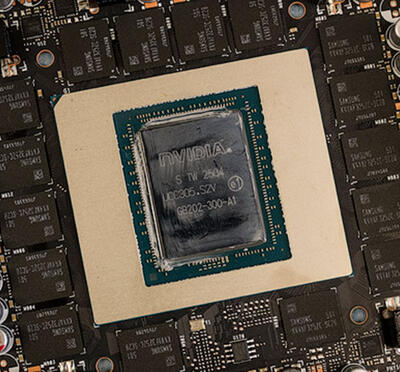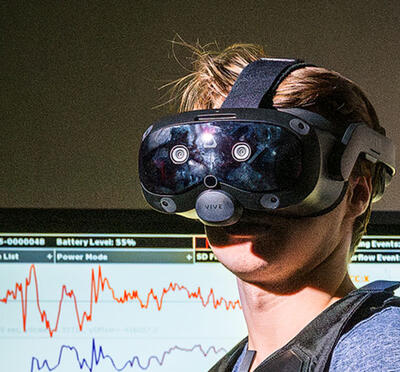In 1998, the College introduced the annual Oregon Stater awards to honor outstanding alumni and friends for their contributions to the engineering profession and to Oregon State University. This year's winners from the School of Mechanical, Industrial, and Manufacturing Engineering are Robert Yüksel Yildirim, Ronald Sarazin, Daniel Wachs, Jason M. Culp, and Todd Gerlach.
Robert Yüksel Yildirim: Engineering Hall of Fame – 2019
M.S. Mechanical Engineering, 1989
President and CEO
Yildirim Group of Companies
Istanbul, Turkey.
Most people believe that it takes a certain amount of luck to succeed in business. Robert Yüksel Yildirim does not agree. He will tell you that the secret to prosperity is a lot of hard work. He uses intuition, lessons learned in childhood, experience gained from numerous business deals, and the engineering education he received from Oregon State.
Today, he is president and CEO of Yildirim Group of Companies, a vertically integrated industrial conglomerate based in Istanbul, Turkey. Business operations range from mining and fertilizer production, to port management and shipbuilding, to real estate and construction, with offices in 50 countries that employ more than 12,000 people.
Yildirim’s journey to becoming one of the most influential people in the global mining and shipping business is rooted in humble beginnings. He was raised in Samsun, Turkey, a seaport city located on the north coast of the Black Sea.
His father owned a small business, trading building supplies and construction materials. He and his two brothers grew up working in the shop. “I have never forgotten those days because they helped me understand the value of money and hard work,” Yildirim said.
Yildirim’s parents wanted their sons to get an education so he earned a bachelor’s degree in mechanical engineering from Istanbul Technical University. He also wanted to learn English, so he asked his parents if he could travel to the United States to study English and get a master’s degree. His father agreed to let him go, but under the condition that he return and one day help run the family business.
Yildirim arrived in the U.S. in 1983 and after spending a year in San Francisco learning English, he followed a friend to Corvallis to begin graduate school at Oregon State. “Everybody was riding bicycles,” he said. “So, I bought a bicycle, a raincoat, and became an Oregonian.”
He immersed himself in his studies and campus life. It was during this time he met his future wife, Yolanda, who was studying accounting and business.
Yildirim says he continues to use the methodologies he learned in his engineering classes when making business decisions.
After completing his master’s degree in mechanical engineering, he took a job with the San Mateo, Californiabased PACECO Corp., a subsidiary of the Japanese firm Mitsui Group that designs cranes for ports and container terminals. This was his first exposure to the global shipping industry. “After five years working with the Japanese, I learned their management system and I was starting to put the puzzle pieces together and look at the big picture,” he said.
He returned home and began to apply his new skills to growing the family business. He first focused on foreign trading operations, including importing coal from Siberia. When the company earned $50,000 in its first month importing nearly 10,000 tons of Russian coal, Yildirim’s imagination soared. Six years later, the revenue from importing coal was high enough for Yildirim and his brothers to diversify their investments by exploring opportunities in shipbuilding, port management, and bulk commodity trading. They then slowly moved into the mining business and acquired more ports. The shift launched them into a new league.
The company has received several notable recognitions. Yildirim ranks 61 on Lloyd’s List of the 100 most powerful and influential persons in the global shipping industry. He is also ranked the ninth most powerful person in the container terminal business and the third most powerful person in the chromium industry by ICDA and CRU.
As much as Yildirim values education, it’s not surprising that the Yildirim Group supports educational projects in Turkey and beyond. Over the last three decades, the company donated all the labor and materials to build three vocational high schools and seven elementary schools in Turkey. In addition, the Garip and Zeycan Yildirim Foundation, launched in honor of Yildirim’s parents, provides scholarships for low-income students and also funds a range of health, environmental, and cultural causes.
Yildirim is also investing in Oregon State with a two-year, $300,000 research project to develop a special nickeland chrome-based superalloy for power plants that use supercritical carbon dioxide.
For now, Yildirim continues to work hard, and always thinks about the big picture — a strategy that transformed a tiny family business into one of Turkey’s most successful global enterprisess an assistant to the president. She plans to return to academia soon to complete an MBA.
Ron Sarazin: Academy of Distinguished Engineers-2019
B.S. Industrial engineering, 1976
President
Olympic performance, inc.
Sherwood, oregon
Ron Sarazin likes to help people and companies solve problems.
He owns Olympic Performance Inc., a training and consulting company based in the Portland area. For nearly 30 years he has been providing executive coaching, strategic planning, and project management training to enhance personal impact and organizational performance. His clients come from industry, city and state governments, nonprofits and federal agencies.
After graduating with a bachelor’s degree in industrial engineering, Sarazin launched his career at Alcoa; gained experience with internal consulting at PACCAR; and then joined Cook–Newhouse and Associates to help clients adopt new manufacturing and distribution processes. Then in 1983, he took a job with Portland General Electric (PGE). The electric utility company was trying to become more progressive, and Sarazin decided that PGE was a place where he could make a difference.
After eight years serving in various management capacities, he realized he missed the technical, problemsolving side of the profession and wanted to get back into consulting. The timing was right, as PGE was beginning to downsize. They offered him a repositioning package that enabled him to start Olympic Performance.
Sarazin coached girls’ soccer, ages 9 to 16, for more than 21 years. He kept coaching long after his daughters grew out of it because he enjoyed helping girls improve and perfect their skills. It’s a strategy he’s also found useful in coaching adults. “The more people improve the fundamentals of what makes them a good player, the better a team becomes and the more games they win,” Sarazin said. “It was never about winning games; it was about the journey they took to get there.”
Sarazin believes strongly in giving back to the community and always has several service projects going. He is former board chair for the Washington County Community Action Organization, served on the Tualatin City Council, and is currently an industry advisory board member for the School of Mechanical, Industrial, and Manufacturing Engineering in the College of Engineering at Oregon State University.
Daniel Wachs: Academy of Distinguished Engineers
B.S. Mechanical engineering, 1995
M.S. Mechanical engineering & nuclear engineering, 1997 directorate fellow, national technical
Lead for fuel safety research
Idaho national laboratory
Idaho falls, idaho
Daniel Wachs comes from a family of nuclear engineers.
His grandfather was a forerunner in the industry, working on the first nuclear reactors to power submarines and heading the reactor physics program at Idaho National Laboratory (INL). And his father worked at the Trojan Nuclear Power Plant near where Daniel grew up in Rainier, Oregon, before taking a job at Oregon State to operate the nuclear engineering program’s training reactor.
When Wachs attended the College of Engineering at Oregon State, he was at first drawn into mechanical engineering and later earned master’s degrees in mechanical and nuclear engineering.
“The professors at OSU were pretty remarkable,” Wachs said. “They inspired me, and they have had a sustaining impact on my career.”
A life-changing internship with Argonne National Laboratory helped launch his career at a time when the government was pulling back on new research — a period starting in the early 1990s and lasting nearly two decades.
Now, rapid technological advances combined with the demand for cleaner energy have spawned a renaissance in the industry. These advances have also given rise to research into technologies that must meet stringent safety-testing protocols, thus reinvigorating INL’s safety test reactors. Wachs, a leading authority on transient fuel testing, is responsible for articulating this new mission on behalf of the Department of Energy, the government agency that runs INL.
“New things are emerging that we never expected,” he said. “It’s a pretty exciting time to be a part of the program.”
With the resurgence of the industry, Wachs is seeing a huge influx of nuclear researchers in their 20s and 30s.
“I’ve had an opportunity to mentor a number of people,” he said. “I’m proud of these people and cherish the opportunity to influence their careers and help them grow into impactful leaders. The long-term success of this field relies upon how effectively we empower people to carry the mantle to the next level.”
Jason M. Culp: Council of Early Career Engineers
B.S. Mechanical engineering, 1999
Engineering design manager
A-dec
Wilsonville, oregon
Jason Culp likes to make things. He is a prolific inventor and an advocate for the inclusion of science and technology in childhood education.
Culp is an engineering design manager for A-Dec, one of the world’s largest makers of dental chairs and equipment. The company was co-founded by Joan and Ken Austin (B.S. Industrial Engineering ’53; E.B. Lemon Distinguished Alumni Award, 2000), generous philanthropists and supporters of Oregon State.
Culp leads a team that designs custom-engineered cabinetry for the company. He likes using his ingenuity to meet the unique and changing needs of each customer and helping his group develop professionally.
“I love my job as a leader because I get to watch people grow,” Culp said. “When my team members come up with new ideas and see them built, it ignites a spark within them.”
While his career has primarily focused on the design of engineered-to-order products, he also coordinates offshore manufacturing efforts.
Culp says the internships he had at Atlas Copco Wagner and Blount while attending Oregon State helped him define a career focus.
“They fueled my passion for creating and building things and really infused the practical application of engineering,” he said.
Culp especially enjoys teaching young minds about science technology, engineering and math careers. He and his wife, Kelley, are four-year coaching veterans of the For Inspiration & Recognition of Science & Technology (FIRST) program in Wilsonville, Oregon. Culp also volunteers as a judge for high school-level robotic competitions.
“I am investing in our future,” he said. “When you combine the robotics experience with the marketing and presentations skills these kids learn, it really opens the door for them to think about a potential career in a different way. They inspire me.”
In addition to his outreach with young students, Culp has served for six years on the industry advisory board for the School of Mechanical, Industrial, and Manufacturing Engineering in the College of Engineering at Oregon State.
Todd Gerlach: Council of Early Career Engineers
B.S. Mechanical engineering, 2000
Director of engineering, concrete cutting & finishing
Blount international, inc.
Tualatin, Oregon
At an early age, Todd Gerlach was interested in understanding how mechanical things work. His projects centered around Legos and radio-controlled cars and evolved into building bicycles and automobiles. “In my early years, I was better at taking things apart than putting them back together,” Gerlach said. “But I stuck with it, expanding my skills and confidence.”
Once at Oregon State, Gerlach became motivated to take full advantage of all the resources available to him. He spent free time at the well-equipped shop in Rogers Hall, exploring the dynamics of complex mechanics. For his senior design assignment, he built a highspeed retrieval robot and demonstrated it for CBW Automation, the event sponsor. The project led to his first job working for the company in Colorado.
“The mechanical engineering program really had a profound impact on me,” he said. “I started seeing all the directions where my education and career could take me.”
Today, Gerlach heads the engineering and product development group for the Concrete Cutting & Finishing (CCF) Division of Blount International. His team is responsible for developing diamond tools and equipment for construction and infrastructure markets.
When Gerlach joined Blount, he started in the Forestry Lawn and Garden Division as a product design engineer, then moved into corporate business development as a senior engineer tasked with helping to diversify Blount’s product portfolio. After designing and launching a new and innovative product, Blount offered him a management position within CCF in 2010, and then promoted him to the division’s director of engineering in 2016.
“I have always loved the technical and creative challenge of problemsolving and data analysis,” he said. “But in my current role, I really enjoy learning about what motivates people and teams, how to bridge the gaps, and developing new talent to achieve extraordinary results.”
Gerlach has mentored many interns and junior-level engineers just entering the profession, which he believes has helped make him a valuable contributor to the industry advisory board for the School of Mechanical, Industrial, and Manufacturing Engineering in the College of Engineering at Oregon State.



